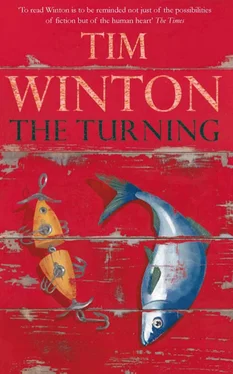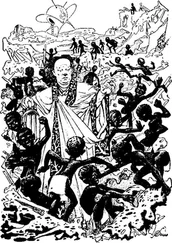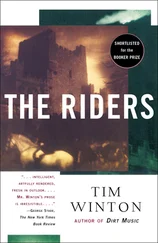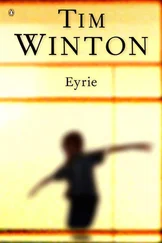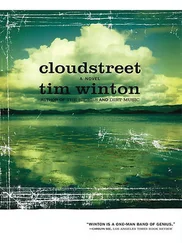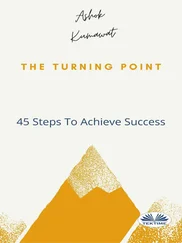From the moment I arrived in my airconditioned Korean car I began to feel sheepish. Police were pulling down their tape barriers and a few news trucks wheeled away. The action was over. I sat behind the little steering wheel feeling the grit of fatigue in my eyes. I didn’t even get out. What had I been expecting to see, more bones, the bones perhaps, have them handed over for my close inspection? Would that suddenly make me sanguine about Alan Mannering?
The swamp has a cycleway around it now and even a bird hide. Around the perimeter, where the wild oats are slashed flat, signs bristle with civic exhortations. Behind the pine log barriers the straight lines give way to the scruffiness of natural Australia. The sun drove in through the windscreen and the dash began to cook and give off a chemical smell. Down at the swamp’s receding edge the scrofulous melaleucas looked fat and solid as though they’d see off another five years of drought. I pulled away and drove up our old street running a few laps of the neighbourhood in low gear. I took in the gardens whose European ornamentals were blanching. Only a few people were about, women and children I didn’t recognize. They stood before bloody mineral stains on parapet walls with a kind of stunned look that I wondered about. A man with rounded shoulders stood in front of my old house. The jacaranda was gone. Somebody had paved where it stood to make room for a hulking great fibreglass boat. No one looked my way more than a moment and part of me, some reptilian piece of me, was disappointed that no one looked up, saw right through the tinted glass and recognized me as the kid who was with Alan Mannering the day he drowned down there on the swamp. It’s as though I craved discovery, even accusation. There he is! He was there! No one said it when it happened and nobody mentioned it since. People were always oddly incurious about him. He was gone; time, as they say, moves on. They all went on without him while he rose and fell, came and went regardless. And they had no idea.
It’s kind of plush-looking, the old neighbourhood, despite the drought: houses remodelled, exotic trees grown against second-storey extensions. Middle class, I suppose, which is a shock until you remember that everyone’s middle class in this country now. Except for the unemployed and the dead. The city has swept past our old outpost. The bush has peeled back like the sea before Moses. Progress has made straight the way until terracotta roofs shimmer as far as the eye can see.
As I left I noticed furniture on the sandy roadside verge around the corner. Some black kids hauled things across the yard in Woolworths bags under the frank and hostile gaze of neighbours either side. An Aboriginal woman raised her fist at a man with a mobile phone and clipboard. I pulled over a moment, transfixed. Another man with a mobile phone and aviator glasses came over and asked me to move on. They were expecting a truck, he said; I complied, obedient as ever, but as I gathered speed and found the freeway entry I thought of the Joneses being evicted like that. I was right to doubt the 1194 man on the telephone. Time doesn’t click on and on at the stroke. It comes and goes in waves and folds like water; it flutters and sifts like dust, rises, billows, falls back on itself. When a wave breaks, the water is not moving. The swell has travelled great distances but only the energy is moving, not the water. Perhaps time moves through us and not us through it. Seeing the Joneses out on the street, the only people I recognized from the old days, just confirmed what I’ve thought since Alan Mannering circled me as his own, pointed me out with his jagged paling and left, that the past is in us, and not behind us. Things are never over.
MY HUSBAND HAD THIS THING about a girl with a birthmark. It began when he was almost fourteen and went on all through high school like a fever that wouldn’t break. It’s a story he used to tell against himself in a kind of wistful tone, and to be honest it was one of the things about him that charmed me, that and his earnest demeanour. He told the story so many times that I feel like I was there, that I lived it with him. He didn’t just rattle these memories off — he’s never been that kind of bore — I had to wheedle them out of him.
Vic refuses to visit the town he grew up in but lately I find myself driving down alone for two or three days at a time. I took a friend once but she was restless inside twenty-four hours. She said I’m like some biographer sniffing around in vain for one final, telling detail that will complete the psychological puzzle at the centre of Vic’s life, but the truth is that I go out of loneliness and, pathetic as it is, I sometimes feel closer to him there knowing that it was the place that formed him. Anyway, it’s a nice little harbour town and this winter I’ve acquired an unexpected passion for whale watching. Now I know the difference between a southern right whale and a humpback. Believe me, I’ve had plenty of weekends to fill.
I suppose the sources of obsession are at once mundane and mysterious. If it wasn’t for my sister’s own fixation I’d be less forgiving about Vic and the weight of his past. I wouldn’t understand at all. I’d be long gone.
When she was six my sister won a doll in a school raffle. It was almost as big as her, the most ravishing thing we girls had ever seen, but it was a cause of great conflict and shame in our house because, like lotteries and cards and horseracing, raffles were a form of gambling and therefore the work of the Devil. Our father was furious. My sister couldn’t even remember buying the ticket — she was a devout girl and no rebel — but when she came home with the prize she begged to be allowed to keep it. She already loved it like a woman smitten by her newborn. Even our mother saw this and pleaded her case, but when our father could convince neither my sister nor my mother to take the doll back to school, it was boxed up and consigned to the top of the linen press where it lay, like a child in a cardboard and cellophane coffin, for fifteen years. In rare moments when the coast was clear my sister snuck to the linen press and climbed the shelves to peer in at the bright, cherubic cheeks and the lace gown and the dimples. It became her lost child. It was the only thing she took with her when she grew up and left home and for the rest of her life it has stood between her and other people, a kind of solace, really, but also a barrier to human intimacy. She has a senior position in the tax office. She’s a highly rational and competent person. Except when it comes to that doll which lies in state in her livingroom like an embalmed child bride.
I always assumed Vic’s infatuation with Strawberry Alison was all in the past, just a mortifying memory, but only last week I found him in the workshop, weeping over an old photograph and a poem and it gave me a chill.
The first time he saw that girl Alison he was horrified. Her birthmark was lurid crimson; it covered half her face and neck, like a mask incompletely removed. Against that splash of colour her thick long hair was blonder, and her eyes bluer than seemed possible. She was newly arrived in town. At first glance her face looked burnt, as though she’d suffered a terrible scorching. Vic’s imagination already brimmed with these flarings, for in those days the news was all napalm flashes and looming thermonuclear disaster. Standing speechless on the school verandah, with his bag sliding from his shoulder, Vic’s horror turned to fascination as he saw that the passing girl’s skin was not bubbled with scar-tissue but perfectly smooth. Her mark was all colour. It was obviously congenital yet he still thought of conflagration, as though she’d survived a fire whose heat had never left her face.
Читать дальше
